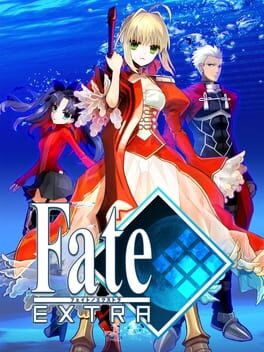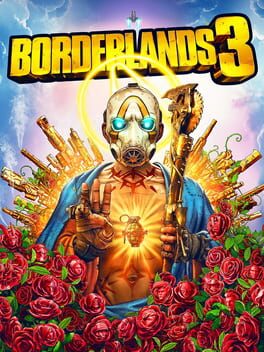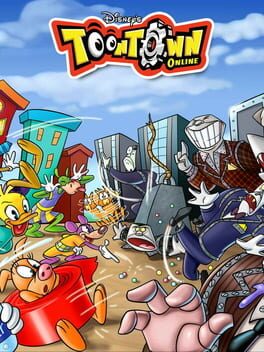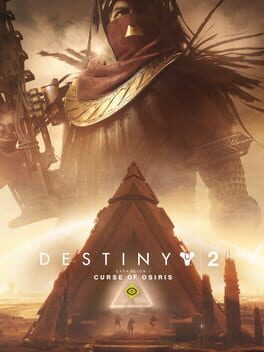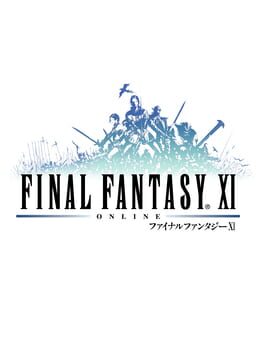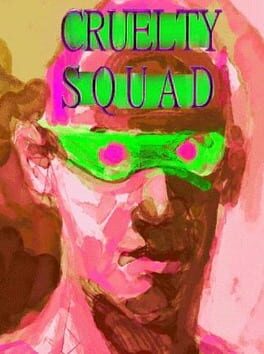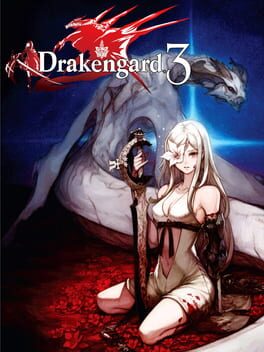USAGII
14 reviews liked by USAGII
Fate/Extra
2010
Borderlands 3
2019
Toontown Online
2003
I have so much to say about this one that I don't know how to structure it in a coherent or meaningful way, so I'll try to keep it short. This is exclusively for the base game; I'll record my thoughts on the expansions separately.
Final Fantasy XI strikes a balance between the traditional simple writing of classic JRPGs (like the first five Final Fantasy games) and the thematic density that defined the JRPGs of the late 90s (like the five Final Fantasy games that came before it). What it lacks in character writing, it makes up for in the strength of its themes and a hyper-sharp focus on the single most important part of any MMO: the world.
Vana'diel as a setting is the true main character of Final Fantasy XI, and every aspect of the game is sculpted in a way that strengthens its distinct feel. Vana'diel wouldn't feel the same without the game's trademark extreme difficulty, nor the somber and mournful tone of the lore, nor the otherworldly ambiance that permates the very act of simply existing in one of the game's many enormous zones. In many ways I feel as if playing the game solo in what is effectively a dead server only intensified this experience; much of Final Fantasy XI is shaped around the idea of Vana'diel's permanent change (or lack thereof) in the wake of a cataclysmic event that changed the world forever. When wandering around alone in the remains of what was once a trailblazing title in the MMO sphere, one's connection with Vana'diel's ever-present sense of sorrow and loss is only intensified: there was once something lively and prosperous here, only to wither away until it and its inhabitants manage to simply skirt on by.
Masato Kato's writing accentuates this feeling; he builds on many of the same themes, ideas and messages as in his previous title Chrono Cross (My Favorite Game Of All Time Btw) while managing to convey them using a more streamlined and conventionally-coherent plot structure. Admittedly the mechanical structure of the game hampers the impact of these ideas a bit (as much as Kato loves to write about the plight of wildlife and beastfolk in JRPGs, it's hard to take it at face value when slaughtering them en masse is the most efficient way to level your jobs), but they're so resonant with the identity of Vana'diel as a world that I can't help but commend them.
FFXI's gameplay is more than anything defined by being bullshit. Sometimes it's bullshit in a charming and endearing way that one can approach like a puzzle and others it's bullshit in a way that's just sort of poorly designed. Again - not to downplay how frustrating it can be, which is often - this just works for what it is: Vana'diel is a hostile, unpredictable and dangerous world defined by conflict. To exist within it is to not know what awaits around the corner, and to accept that prosperity is equally likely to come as a swift death.
It's such a unique gamefeel that I can't really describe it but I think everything about it works together to make something that is very singular and unique even today. While the sense of thriving community is gone, the experience of wandering in what remains of it persists and lives on as Final Fantasy XI's primary attraction.
This change defines Final Fantasy XI in the current day and age, much like Vana'diel is defined by the lingering effects of the war that tore it asunder.
Final Fantasy XI strikes a balance between the traditional simple writing of classic JRPGs (like the first five Final Fantasy games) and the thematic density that defined the JRPGs of the late 90s (like the five Final Fantasy games that came before it). What it lacks in character writing, it makes up for in the strength of its themes and a hyper-sharp focus on the single most important part of any MMO: the world.
Vana'diel as a setting is the true main character of Final Fantasy XI, and every aspect of the game is sculpted in a way that strengthens its distinct feel. Vana'diel wouldn't feel the same without the game's trademark extreme difficulty, nor the somber and mournful tone of the lore, nor the otherworldly ambiance that permates the very act of simply existing in one of the game's many enormous zones. In many ways I feel as if playing the game solo in what is effectively a dead server only intensified this experience; much of Final Fantasy XI is shaped around the idea of Vana'diel's permanent change (or lack thereof) in the wake of a cataclysmic event that changed the world forever. When wandering around alone in the remains of what was once a trailblazing title in the MMO sphere, one's connection with Vana'diel's ever-present sense of sorrow and loss is only intensified: there was once something lively and prosperous here, only to wither away until it and its inhabitants manage to simply skirt on by.
Masato Kato's writing accentuates this feeling; he builds on many of the same themes, ideas and messages as in his previous title Chrono Cross (My Favorite Game Of All Time Btw) while managing to convey them using a more streamlined and conventionally-coherent plot structure. Admittedly the mechanical structure of the game hampers the impact of these ideas a bit (as much as Kato loves to write about the plight of wildlife and beastfolk in JRPGs, it's hard to take it at face value when slaughtering them en masse is the most efficient way to level your jobs), but they're so resonant with the identity of Vana'diel as a world that I can't help but commend them.
FFXI's gameplay is more than anything defined by being bullshit. Sometimes it's bullshit in a charming and endearing way that one can approach like a puzzle and others it's bullshit in a way that's just sort of poorly designed. Again - not to downplay how frustrating it can be, which is often - this just works for what it is: Vana'diel is a hostile, unpredictable and dangerous world defined by conflict. To exist within it is to not know what awaits around the corner, and to accept that prosperity is equally likely to come as a swift death.
It's such a unique gamefeel that I can't really describe it but I think everything about it works together to make something that is very singular and unique even today. While the sense of thriving community is gone, the experience of wandering in what remains of it persists and lives on as Final Fantasy XI's primary attraction.
This change defines Final Fantasy XI in the current day and age, much like Vana'diel is defined by the lingering effects of the war that tore it asunder.
Cruelty Squad
2021
cruelty squad understands what made shooters from the mid-90s to early 00s so distinct and special better than pretty much every other so-called boomer shooter revival game: a combination of weird atmosphere, uncanny map design, and a genuine sense of mystery and crypticism that eventually payoff in discovery and reward. secrets feel like secrets in an old-timey sense, the way they're all buried away and provided without fanfare or notification that they're supposed to be secrets. it encourages you to explore, which in turn makes you get the most out of the (mostly) super tight level designs
i feel like people overstate the grossout/poor graphics aesthetic. that stuff is all there in spades but acting as if that's the game's main selling point kind of sells the game short - the gameplay and game design, atmosphere, themes and even the bits-and-pieces of story and capital l Lore are all really, really solid. you hear a lot about the "tactical shooter" angle but i was pleasantly surprised to find out how much this game encourages, accomodates and necessitates FPS Shit like bunny hopping, surfing, rocket jumping and wall jumping and makes it work with the slow, methodical, routing-and-planning emphatic aspect of things. this game has Schmovement and it's good! it's just real, real good
mostly, anyways. the level designs can be a little bit inconsistent (it's mostly the big, wide-open levels that suffer, as i feel cruelty squad is at its best when things are small, compact, and tightly designed with every run through exposing a new possible plan of action for your next run), and flesh rats are fucking bullshit and seem to exist only to make you rely on rote memorization instead of knowing the level well enough to improv as obstacles necessitate, which most of the gameplay otherwise focuses on and excels at.
the plot, lore, themes, ideas, etc. are all super interesting too but i think i need to digest them and think about them a bit more before i have anything meaningful to say about them. they're pretty obfuscated and delivered with very opaque and dense prose that almost kind of reminds me of the stilted and imperfect english that the original quake used? just on the opposite side of the spectrum, a lot more verbose and eloquent than i was expecting
for once i have more to say about the gameplay than i do about the writing. they're both good. really, really good. it's just a really good game
i feel like people overstate the grossout/poor graphics aesthetic. that stuff is all there in spades but acting as if that's the game's main selling point kind of sells the game short - the gameplay and game design, atmosphere, themes and even the bits-and-pieces of story and capital l Lore are all really, really solid. you hear a lot about the "tactical shooter" angle but i was pleasantly surprised to find out how much this game encourages, accomodates and necessitates FPS Shit like bunny hopping, surfing, rocket jumping and wall jumping and makes it work with the slow, methodical, routing-and-planning emphatic aspect of things. this game has Schmovement and it's good! it's just real, real good
mostly, anyways. the level designs can be a little bit inconsistent (it's mostly the big, wide-open levels that suffer, as i feel cruelty squad is at its best when things are small, compact, and tightly designed with every run through exposing a new possible plan of action for your next run), and flesh rats are fucking bullshit and seem to exist only to make you rely on rote memorization instead of knowing the level well enough to improv as obstacles necessitate, which most of the gameplay otherwise focuses on and excels at.
the plot, lore, themes, ideas, etc. are all super interesting too but i think i need to digest them and think about them a bit more before i have anything meaningful to say about them. they're pretty obfuscated and delivered with very opaque and dense prose that almost kind of reminds me of the stilted and imperfect english that the original quake used? just on the opposite side of the spectrum, a lot more verbose and eloquent than i was expecting
for once i have more to say about the gameplay than i do about the writing. they're both good. really, really good. it's just a really good game
Drakengard 3
2013
This game came very, very close to being my favorite game of all time, but in the end it didn't hit the mark the way that a lot of my favorites did. This isn't a bad thing; NieR expresses all of its ideas in as coherent and fluid a manner as it can and I think it really hammers home everything that it needs to with the tools that it has. It just didn't tell me anything I didn't already know - and that’s a good thing. I cherish NieR as much as I do for the exact reason that it reminds me so much of what I have, what I know and how I've grown.
NieR is a celebration of video games as a medium; it picks them apart, critiques them, and gets to know them inside-and-out for all their weird quirks and then pieces them back together, the relationship between creator and creation much stronger for all the bizarre intimacy and trust that can only come when you've exhausted every little detail of something you know and love so well. In many ways, NieR is the definitive game of the state of games in 2010: a look back at the achievements of games' past (with countless homages to games such as Resident Evil or the original Legend of Zelda with gameplay mix-ups and perspective changes), while taking a few brave first steps into the increasingly unique and experimental narrative language games had started to develop going into their fourth decade of mainstream prevalence.
There’s also something to be said about NieR’s LGBT themes and the manner in which it explores them and works them into its core narrative; every single member of the main party has some sort of LGBT experience related to their story. Rather than dedicating entire subplots to extrapolating upon these themes, it lets the player identify these characters as gay/intersex/bisexual and then places them in circumstances where one can identify strong parallels with LGBT experiences in a very real way without having to carve out room in the story just for those. It feels natural, and it’s the best way I’ve seen a game tackle LGBT themes - a scene where two “non-human” characters reassure one another over their “flaws” becomes a textual example of LGBT solidarity in the narrative, whereas one character’s discomfort and feeling unsafe being half-shade in a party of shade-hunters becomes a parallel to the fears that intersex and transgender feel in cisgender society. I’ve never seen another narrative handle it so subtly and yet so explicitly as Nier does, and I cherish it endlessly.
The fact that NieR has two protagonists is one of the best possible decisions that could have been made for this game. Perception, perspective and understanding is an important theme in this game, and a lot of the writing is written in a way that will resonate differently depending on whether or not the protagonist is a young man protecting his sister or a middle-aged man protecting his daughter. Brother Nier’s story is one of the best intentions and purest love slowly rotting into the most volatile hate, whereas Papa Nier’s story is one of how even the most innocent and noble of love can draw you to do terrible, awful things. Both protagonists have unique and incredibly impactful effects on the world around them, and are impacted by it in different ways, and have equally meaningful and unique relationships with their party members.
I personally prefer Brother Nier - he resonates with me on a much greater level and I find his more dynamic character arc more compelling, and I’m a sucker for understated, subtle romances such as the one between Brother Nier and Kainé, which is amplified considering the backstory context (and resulting LGBT status) that Brother Nier has whereas Papa Nier does not have it. At the same time, I cannot imagine NieR without Papa Nier. I found myself missing him even when he was right there in the playthrough of NieR: Gestalt I watched while playing through Replicant.
Some criticize the new ending in the remake as unfitting or that it ruins the original game’s point. I understand where they’re coming from in saying so, but I disagree - I think to emphasize NieR as a purely cynical and centering its darkness above all else is to miss the point. NieR is a story about love, and what people are willing to do for the people that they love. Some loyalties are unbreakable and will lead people to do unthinkable things - such as “undo” a poignant and controversial ending that many people consider the highlight of the narrative in which they are held. (Personally, I find Ending D to be a bit overrated - the twist ending comes as a bit shoehorned in and doesn’t have much narrative weight or presence, without ever explaining how Nier can do what he does to achieve that ending).
The only true complaint I have is that I feel that it’s a touch too short and relies too heavily on padding through (ultimately meaningless, if not entertaining) sidequests, and that its truly emotionally impactful moments are more-or-less hastily crammed into a game whose routes you could beat in ten hours or less if you rushed through it (it took me about eighty hours to achieve all five endings, with this in mind). I understand the importance of the game’s replay value and that it’s what makes the game so special, but at the same time I feel like I would have definitely been willing to rack up 100 hours or more in exchange for longer playthroughs so that I could see the party interact more. The four-man ensemble of Nier, Kainé, Emil and Grimoire Weiss is my favorite in any video game, and it feels like we’re made to say goodbye to them just as we’ve truly gotten to know them.
But — and this is a key theme of NieR in and of itself — perhaps it is more important to appreciate the journey itself, for often it won't end the way you expect, or even in the manner that you want it to. Sometimes you're happier on the path to your goals than you are when you achieve them. Love your friends while you still can, cherish every step you take for what it is, and don’t look back.
NieR is a celebration of video games as a medium; it picks them apart, critiques them, and gets to know them inside-and-out for all their weird quirks and then pieces them back together, the relationship between creator and creation much stronger for all the bizarre intimacy and trust that can only come when you've exhausted every little detail of something you know and love so well. In many ways, NieR is the definitive game of the state of games in 2010: a look back at the achievements of games' past (with countless homages to games such as Resident Evil or the original Legend of Zelda with gameplay mix-ups and perspective changes), while taking a few brave first steps into the increasingly unique and experimental narrative language games had started to develop going into their fourth decade of mainstream prevalence.
There’s also something to be said about NieR’s LGBT themes and the manner in which it explores them and works them into its core narrative; every single member of the main party has some sort of LGBT experience related to their story. Rather than dedicating entire subplots to extrapolating upon these themes, it lets the player identify these characters as gay/intersex/bisexual and then places them in circumstances where one can identify strong parallels with LGBT experiences in a very real way without having to carve out room in the story just for those. It feels natural, and it’s the best way I’ve seen a game tackle LGBT themes - a scene where two “non-human” characters reassure one another over their “flaws” becomes a textual example of LGBT solidarity in the narrative, whereas one character’s discomfort and feeling unsafe being half-shade in a party of shade-hunters becomes a parallel to the fears that intersex and transgender feel in cisgender society. I’ve never seen another narrative handle it so subtly and yet so explicitly as Nier does, and I cherish it endlessly.
The fact that NieR has two protagonists is one of the best possible decisions that could have been made for this game. Perception, perspective and understanding is an important theme in this game, and a lot of the writing is written in a way that will resonate differently depending on whether or not the protagonist is a young man protecting his sister or a middle-aged man protecting his daughter. Brother Nier’s story is one of the best intentions and purest love slowly rotting into the most volatile hate, whereas Papa Nier’s story is one of how even the most innocent and noble of love can draw you to do terrible, awful things. Both protagonists have unique and incredibly impactful effects on the world around them, and are impacted by it in different ways, and have equally meaningful and unique relationships with their party members.
I personally prefer Brother Nier - he resonates with me on a much greater level and I find his more dynamic character arc more compelling, and I’m a sucker for understated, subtle romances such as the one between Brother Nier and Kainé, which is amplified considering the backstory context (and resulting LGBT status) that Brother Nier has whereas Papa Nier does not have it. At the same time, I cannot imagine NieR without Papa Nier. I found myself missing him even when he was right there in the playthrough of NieR: Gestalt I watched while playing through Replicant.
Some criticize the new ending in the remake as unfitting or that it ruins the original game’s point. I understand where they’re coming from in saying so, but I disagree - I think to emphasize NieR as a purely cynical and centering its darkness above all else is to miss the point. NieR is a story about love, and what people are willing to do for the people that they love. Some loyalties are unbreakable and will lead people to do unthinkable things - such as “undo” a poignant and controversial ending that many people consider the highlight of the narrative in which they are held. (Personally, I find Ending D to be a bit overrated - the twist ending comes as a bit shoehorned in and doesn’t have much narrative weight or presence, without ever explaining how Nier can do what he does to achieve that ending).
The only true complaint I have is that I feel that it’s a touch too short and relies too heavily on padding through (ultimately meaningless, if not entertaining) sidequests, and that its truly emotionally impactful moments are more-or-less hastily crammed into a game whose routes you could beat in ten hours or less if you rushed through it (it took me about eighty hours to achieve all five endings, with this in mind). I understand the importance of the game’s replay value and that it’s what makes the game so special, but at the same time I feel like I would have definitely been willing to rack up 100 hours or more in exchange for longer playthroughs so that I could see the party interact more. The four-man ensemble of Nier, Kainé, Emil and Grimoire Weiss is my favorite in any video game, and it feels like we’re made to say goodbye to them just as we’ve truly gotten to know them.
But — and this is a key theme of NieR in and of itself — perhaps it is more important to appreciate the journey itself, for often it won't end the way you expect, or even in the manner that you want it to. Sometimes you're happier on the path to your goals than you are when you achieve them. Love your friends while you still can, cherish every step you take for what it is, and don’t look back.
